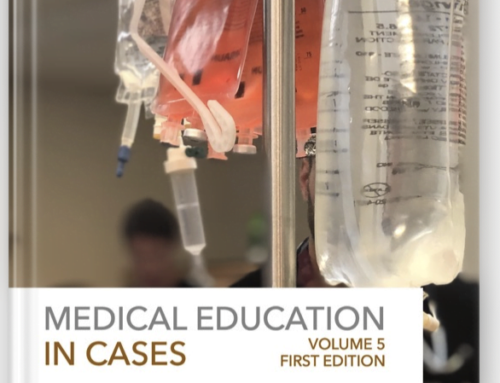 Welcome to season 4, episode 7 of the ALiEM Medical Education in Cases (MEdIC) series! Our team (Drs. Tamara McColl, Teresa Chan, John Eicken, Sarah Luckett-Gatopoulos, Eve Purdy, Alkarim Velji and Brent Thoma) is pleased to welcome you to our online community of practice where we discuss the practice of academic medicine!
Welcome to season 4, episode 7 of the ALiEM Medical Education in Cases (MEdIC) series! Our team (Drs. Tamara McColl, Teresa Chan, John Eicken, Sarah Luckett-Gatopoulos, Eve Purdy, Alkarim Velji and Brent Thoma) is pleased to welcome you to our online community of practice where we discuss the practice of academic medicine!
This month, we present a case of an emergency attending who questions the common consultant call-etiquette of not contacting attending physicians to provide back-up on a busy call shift.
MEdIC: The Case of the Solo Senior
By Dr. Kaif Pardhan
It was a busy night at Willow Wind Hospital, a large academic teaching centre. Sheila, one of the staff emergency physicians, was just finishing up her evening shift. She quickly looked up at the clock above stretcher #10. It was just five minutes before midnight handover; just enough time to complete her last duty of the night: Consulting the internal medicine resident for an admission of a hypoxic elderly woman with community acquired pneumonia.
It was a slam dunk case in her opinion. The patient had a room air oxygen saturation of only 85% despite several hours of treatment in the department. When she had initially arrived she had been hypotensive, delirious, short-of-breath and hypoxic. The initial septic work-up was complete, the patient had been appropriately resuscitated. Antibiotics and fluids had been initiated, and hours after she had arrived, she was now hemodynamically stable.
Sheila located Jose, the PGY-2 Internal Medicine Senior Resident, in the emergency consult room. He seemed to be diligently typing up a consultation, but seemed quite frazzled. “Hey Jose, how are you doing? I’ve got a quick consult for you. It’s an easy one so shouldn’t take long!”
Jose was already stressed but hearing that he had yet another consult to complete was making him panic. His stomach was in knots and he could hear his heart beating rapidly in his chest. He had always heard that “The Willow” had a very busy internal medicine service and his first senior call was certainly holding true to its reputation! His pager started going off at precisely 5:00 pm when he started his senior shift and hasn’t stopped since. He’d already received 17 consults, not counting the 5 left over from the day team. Several consults still needed to be triaged and he hadn’t started reviewing with his juniors or medical students. He had just called his staff, Dr. Gupta, for the 11pm update. Not wanting to appear too needy, he told her everything was “going well”.
Jose sighed and resignedly grabbed his pen and his new consults sheet. He looked up at Sheila, and softly asked: “Can this consult wait a few hours? It’s been crazy and I haven’t started reviewing the prior consults yet… and I still have several consults to triage.”
“Sounds like you’re having a rough night,” Sheila responded, notably concerned. She could see Jose was overwhelmed and very stressed.
“Yeah, I have never had a call shift this busy before,” replied José.
“Have you called your staff to come in for back-up?”
“I just got off the phone with Dr. Gupta… It’s fine. I can handle it. Just give me the consult.”
“Well, is she coming in to help out?” Sheila was a good friend of Mindy Gupta, the staff internist on call. Mindy was a rockstar educator, and there was absolutely no way that she wouldn’t be right next to José slugging it out if she knew he was drowning. Everything seemed off. “Hey, you know I went to school with Dr. Gupta, I can text her for you if you’d like?”
“No, please don’t. I’m fine. So what’s the consult? I have to get moving!”
Discussion Questions
- Whose responsibility is it to activate the back up for the Senior resident? Whether that be in the form of the staff or back-up senior resident?
- What role does the emergency department play in making sure that consultant services are not overwhelmed on busy nights?
- How might we create the conditions for senior residents in the hospital to be successful in managing large case loads? And how do we prepare them to take on this responsibility as they transition into independent practice?
Weekly Wrap Up
As always, we will post the expert responses and a curated commentary derived from the community responses 2 weeks after the case is published.
This month, our 2 experts are:
- Dr. Lindsay Melvin
- Dr. Alim Pardhan
On May 12, 2017 we will post the curated commentary and expert responses to this case! After that date, you may continue to comment below, but your commentary will no longer be integrated into the curated commentary. That said, we’d love to hear from you, so please comment below!
All characters in this case are fictitious. Any resemblance to real persons, living or dead, is purely coincidental. Also, as always, we will generate a curated community commentary based on your participation below and on Twitter. We will try to attribute names, but if you choose to comment anonymously, you will be referred to as your pseudonym in our writing.
Inspired by the Harvard Business Review Cases and initially led by Dr. Teresa Chan (@TChanMD) and Dr. Brent Thoma (@Brent_Thoma), the Medical Education In Cases (MEdIC) series puts difficult medical education cases under a microscope. On the last Friday of the month, we pose a challenging hypothetical dilemma, moderate a discussion on potential approaches, and recruit medical education experts to provide “Gold Standard” responses. Cases and responses are made available for download in PDF format – feel free to use them! If you’re a medical educator with a pedagogical problem, we would love for you to get involved in the MEdIC series! Send us your most difficult dilemmas (guidelines) and help the rest of us bring our teaching to the next level.




